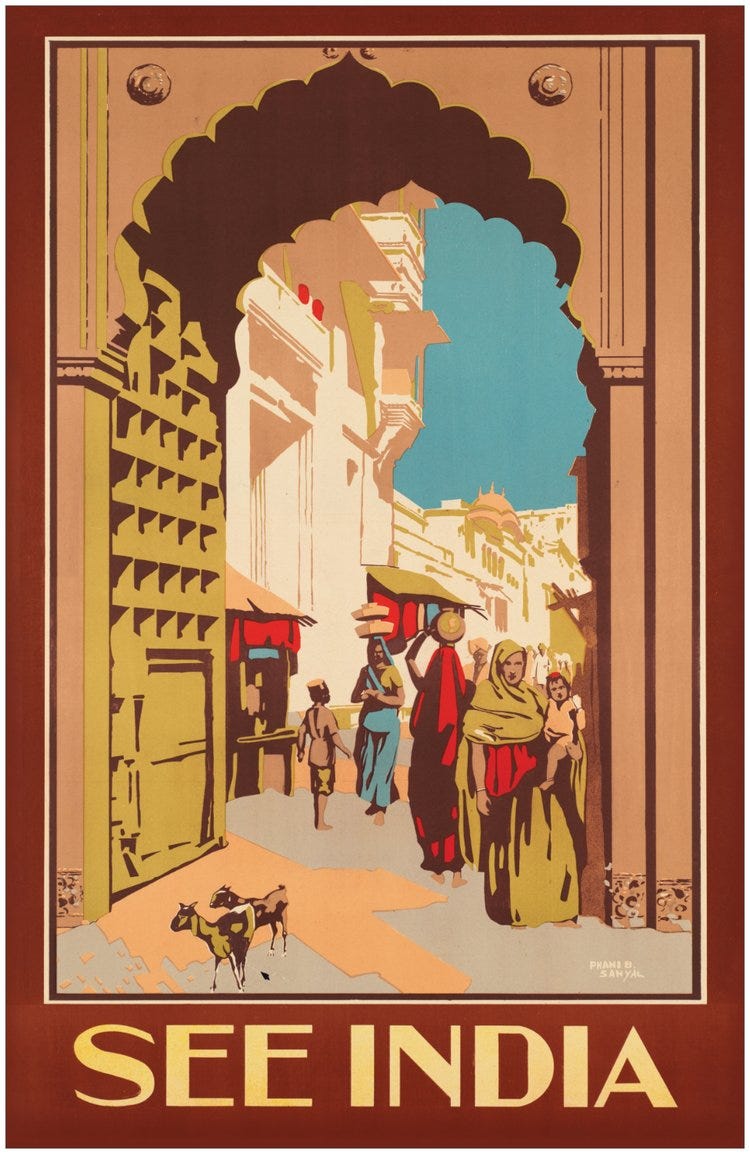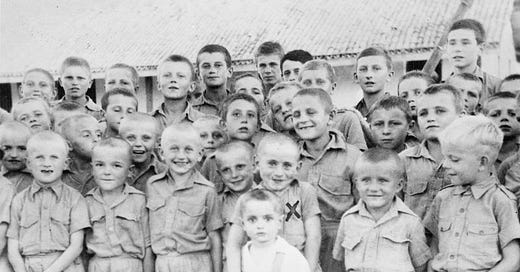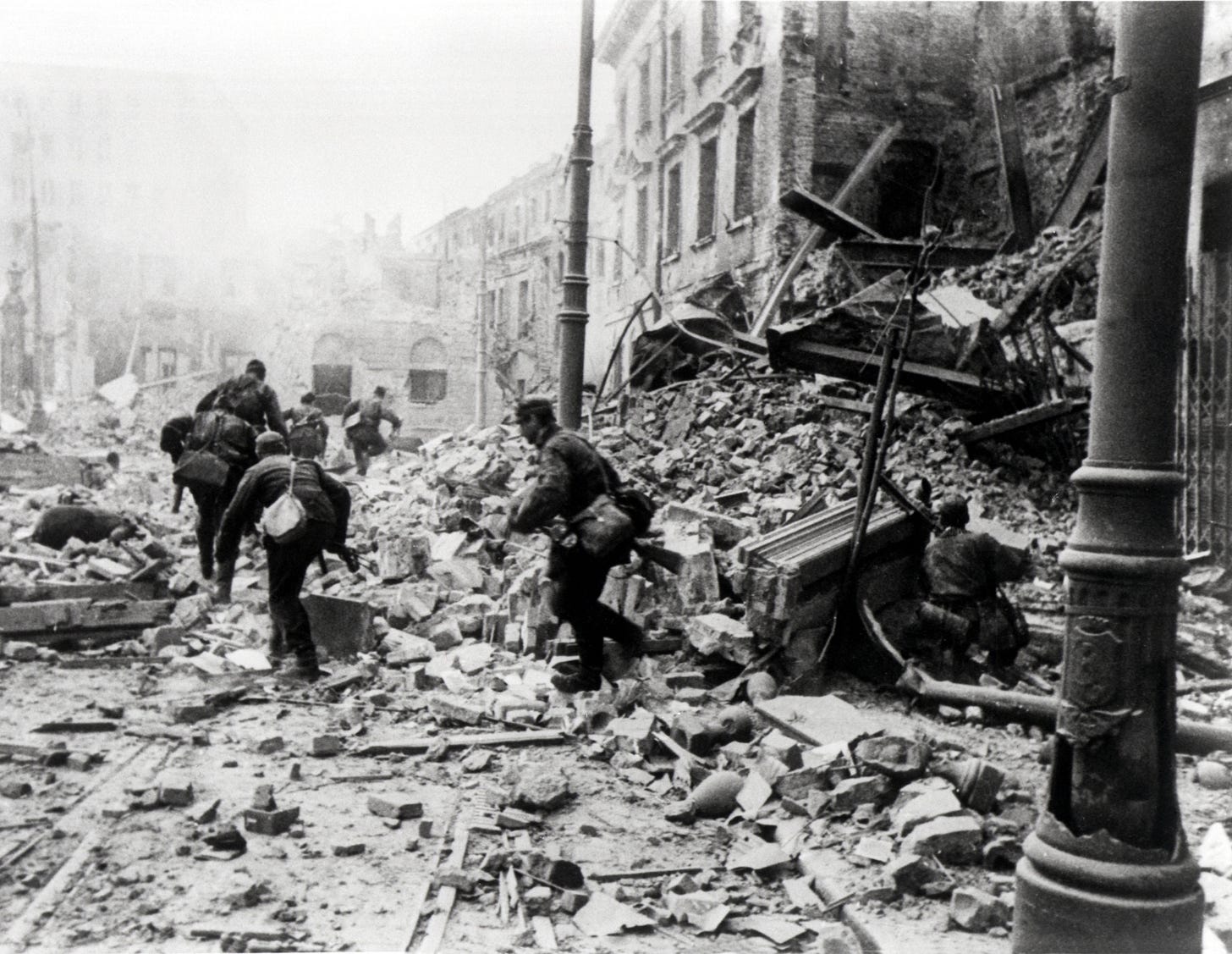Welcome to the Brown History Newsletter. If you’re enjoying this labor of love, please do consider becoming a paid subscriber. Your contribution would help pay the writers and illustrators and support this weekly publication. If you like to submit a writing piece, please send me a pitch by email at brownhistory1947@gmail.com.
Don’t forget to check out our SHOP and our Podcast.

Polish Refugees in India during World War I
In October 2022, the United Nations Human Rights Council conducted a crucial vote on a draft resolution addressing racism and xenophobia. Despite the resolution garnering support from 32 out of the 47 participating countries, nine nations, including Poland, voted against it. Poland, under the influence of the right-wing Law and Justice (PiS) Party, which assumed power in 2015, exhibited a firm stance against immigration, particularly evident in its preparations for the upcoming 2023 elections. Emphasizing a strict stance, the party consistently portrayed non-European migrants as perceived threats to society. Mateusz Morawiecki, the acting Prime Minister of Poland at the time, articulated this stance by asserting, "Poland does not agree to have someone else furnishing our home." This statement was made in the context of Poland's opposition to a proposed European Union migration reform in 2023. The government's refusal to align with the UN resolution against racism and xenophobia and Morawiecki's assertion underscored the country's firmly entrenched anti-immigration policy.
In contrast to Poland's contemporary stance against international efforts on racism and xenophobia under the Law and Justice (PiS) Party, it's compelling to delve into historical episodes that shed light on a more compassionate approach to migration. Beyond present-day politics, the echoes of migration challenges reverberate in the annals of World War II. Notably, amidst Poland's resistance to immigration reform, there lies a contrasting narrative of refuge in unexpected corners of the world, particularly in India and Pakistan. These Subcontinental nations, in a stark departure from Poland's anti-immigration stance, offered solace and sanctuary to at-risk Polish migrants during a tumultuous period in history.
During World War II, Poland endured the invasion and occupation by both Nazi Germany and the Soviet Union. The aggressors partitioned and seized territories, exploiting resources while suppressing civic society. In December 1939, the Soviet Union, pursuing the sovietization of Poland, implemented a policy to eliminate "politically unreliable elements" from its conquered territories. This led to the expulsion and deportation of entire generations of Poles from their homes and homeland.
Amidst the turbulent events of World War II, the Soviet-German alliance fractured, creating an opportunity for the Soviets to integrate displaced Poles into their ranks and establish the Polish Army under the USSR. Despite strained Soviet-Polish relations due to mass expulsions and harsh living conditions, this collaboration was born out of necessity.
Simultaneously, following the German and Russian invasions of Poland, numerous soldiers, airmen, and sailors sought refuge in Britain through France. They played a crucial role in the Allies' fight against the Nazis and later the Soviets. The families of these Poles found refuge in British territories across Asia and North Africa, perceived as potential targets for Nazi attacks by British colonial powers. The Anglo-Soviet Agreement, signed on 12 July 1941, marked a declaration of cooperation in the war against Nazi Germany between the United Kingdom and the Soviet Union.
It was during this time that the transport of aid for the distressed Polish population from India emerged as a crucial initiative. The Polish Consulate in Mumbai (Bombay) and the Polish Red Cross delegation were pivotal in coordinating this effort. Consul General Eugeniusz Banasiński and his wife, Kira, leading the Polish Red Cross and Ministry of Labor and Welfare delegations, took charge of organizing aid for Poles on Indian soil. Going beyond basic assistance, they played a vital role in establishing numerous Polish refugee settlements in India, with a special focus on the well-being of women and children.






